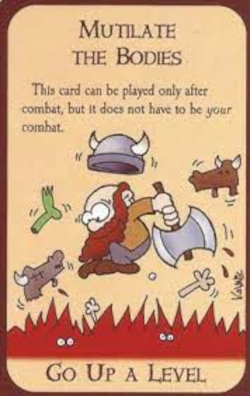Phenomenology of hate: A reply to a thread started by a Memoir of a Tired Feminist.
Power, Fear and Resentment as Sources of Gender Hate (Part 1)
There is a game we all play, the game of power. It makes us hate each other, because we fear those who have more power than us, and resent those who prevent us from gaining more power.

You can read this text as a stand-alone, or as a voice in this debate:



NOTE: I am a man and I am writing this from a male perspective. I have way more to say about men than about women and you will see this throughout the text. I invite anyone who wishes to add the missing nuance from a female perspective to do so in the comments or own stories.
The Game We All Play
When you grow up as a boy, you might be playing many games, but this one you play for sure.
The Game of Power.
The game of establishing the pecking order and hierarchy. The game of who gets to call the shots and who must follow.
In fact, all the other games are just a part of it — being good at football scores you points, as does being witty, strong, attractive. And, at some point, girls.
To score high in that game, you can work hard on becoming better at things. This way, you gain but no-one loses.
But there is another way, too. You just push others down. You use the power you have to take power from others. By making them less powerful, you increase the distance between you, so your relative power rises.

You can’t just opt out of that game. If you try, all you do is place yourself at the bottom of the pecking order. Now you have even less power and others will use you to increase their score. When they‘re low, they’ll kick you for easy points.
Even if you never wanted to play the game, you’re in it. Girls, for example. Some girls might hang out with the boys and intentionally play the game with them. But for the most part, girls are in the game, just not as players.
Girls are the points.
(For the note, I’m sure girls have their own power games with their own rules and perhaps boys are points in those games. I just don’t feel qualified to talk about them — please share in the comments if you wish.)
The Game Develops
As you grow up, the game doesn’t stop. But the rules change. In particular, what gives you points changes: it’s no longer being good at football and knowing everything about sports cars. It’s money, political influence, social capital, and most definitely all those sweet sweet girl points.
This means that the scoreboard also changes. All the past winners who were sporty, strong and witty, but not particularly smart or willing to learn, are now lagging behind. Meanwhile, all the quiet nerds who were kicked for easy points, now make big bucks in tech.
They might have once said they don’t want to play this stupid game, but now that they’re winning…
They very much remember the times when they were the underdogs. And they revel in taking power back. And they will gladly remind the once-winners who’s the boss now.

But quite often, those new high-earning top dogs are still somewhat socially awkward nerds who have never learned to have the entitled confidence of a hot sports bro. They might not be that handsome, fun or interesting to be around. And what that means, is that while they can score all the money points, they still can’t get those girl points to get them all the way up the Boys’ Power Game leader board.
Except this isn’t just a boy’s game anymore
Because the things we score points on now aren’t just a boys thing. Girls might not have particularly wanted to play football, but women certainly do want good jobs, political influence, social capital, etc.
Women don’t want to be points in a Boys’ Game. If they are to play at all, they want to be players in an Everybody’s Game.
Thus, not only did the game get harder, not only is the points system more confusing, not only are old losers the new winners — now we also have double the number of players, and half of them weren’t even invited.
Fear, Resentment and Hate
How do you react when someone outperforms you in the game? When someone blocks your access to the points you want to get? When you’re winning but worry that anyone could overtake you at any minute?
The old winners
The guys who used to have all the points but now work low-paying jobs serving the nerds they used to push about — they resent this to no end. They hate their new masters, because they fear that they will never be able to win with them under the new rules.
They try to stay in the game and push themselves up in any other way they can, but most obviously by scoring women. And they resent and hate the women who will deny themselves to them, daring to demand to be treated as players, not points.

The new winners
No winner, from the Silicon Valley millionaire to a middle-class corporate minion — ever feels secure about their position in the Game. They learned fear as boys when they were always minutes away from taking a beating, and they never stopped seeing themselves as the underdogs.
They never stopped to hate their old masters, because they never stopped to fear them. They will gladly repay them in kind: use their power to put others down and thus increase the power distance between them.
Moreover, they might be scoring high points in many ways, but those good old girl points are still out of reach. They hate with a bitterness rooted in deep resentment. They resent those men, those chads who do have the charms and social skills they lack, and they certainly resent the women who deny them access to the love and sex points by refusing to be treated as points.
(NOTE: of course, we all want love and sex for their own sake, too. But that doesn’t mean that they aren’t also one of the things that give us status, respect, and power in the Game)
But there is one more thing that unites all the male players. They already find it hard to compete against each other, so they can hardly like it that the competition has now basically doubled.
Thus, they hate women not just out of resentment for gatekeeping the points they think they should have access to. They hate them out of fear that, as players, women could outperform them in their own game.
Meanwhile, women are sick of being treated as points.
They either don’t want to play this stupid game, or if they are to play it, they want to be treated as players, with equal chances of winning.
The original underdog men might have learned to fear their old masters because of all the abuse they got from them as kicking boys, but this in no way compares to the fear the girls have learned. They were never even players. They were points to be used in any way the winner wanted.
They were only treated well if treating them well was the way to score points. But more often than not, you could score better points by treating them badly.

They learned to hate men long ago, because they have always feared them. Because they never knew if the guy they’re hanging out with won’t decide that he could get more points by ditching them. That he could regain some points he lost by scoring a girl. Or worse — that he could abuse her, because that’s a way to decrease her power and thus to increase the power difference between them.
They know how to hate men out of resentment, too. After all, many men still keep them from scoring money points, political points, and so on.
There is more coming. I split this text into two for better readability. See the second part here:
Retagging to keep continuity: Rhoda Owolabi, SC, Elle Beau, Ossiana Tepfenhart, April Hawkins, Ask A Bitchface, Sanni Lark, Haylee Griffith, Robert K Starr (he/him), Jessica Wildfire, Katie Jgln, Amber Fraley, Bree Yoo Sun Jung, 정 유선, June Kirri, Celtic Chameleon, Pineapple Jones-Smith, Taru Anniina Liikanen, Fay Wylde, Shelly Fagan, Rivka Wolf, Argumentative Penguin, Katie Jgln, Trey Hamilton, A Strong Woman Weak, Jack Brown, Vincent Downing at thehumanistbeing.org.
